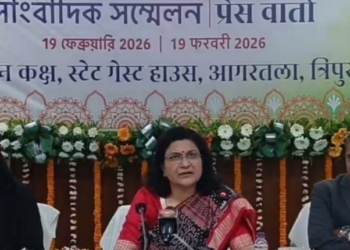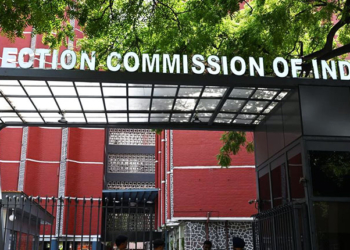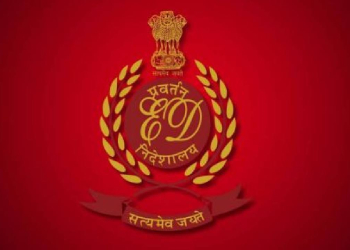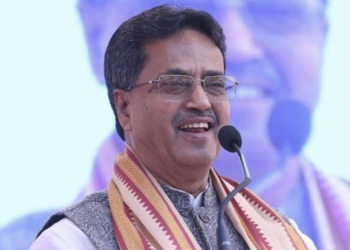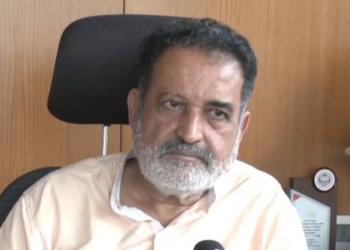New Delhi: A Delhi court’s recent order granting regular bail to Bharatiya Janata Party MP and former Wrestling Federation of India (WFI) chief, Brij Bhushan Sharan Singh, in connection with the sexual harassment case of female wrestlers, leaves many questions unanswered.
The prime question that rises is why was Singh granted bail even after serious allegations were levelled against him?
Additional Chief Metropolitan Magistrate Harjeet Singh Jaspal of Rouse Avenue Court, in his nine-page order, released on Friday, said that allegations of sexual harassment against Singh were “serious” but no purpose will be served by taking him in custody at this stage.
According to the law, when the accused has not been arrested and the charge sheet has been filed without arrest in the case, he ought to be granted bail.
The Delhi Police’s 1,599-page charge sheet, containing statements of around 200 witnesses, was filed on July 15 before Chief Metropolitan Magistrate Mahima Rai for the offences under Sections 354 (Assault or criminal force to woman with intent to outrage her modesty), 354A (making sexually coloured remarks), and 354D (stalking) of Indian Penal Code (IPC) against Singh.
The court had also granted bail plea to co-accused Vinod Tomar, a former Assistant Secretary of Singh, who has been accused of offences under Sections 109 (abetting officer), 354, 354A, 506 (criminal intimidation) of the IPC.
In the order, the judge said: “In the instant case, the allegations are serious. In my view, the seriousness of the allegations, no doubt, is one of the relevant considerations while considering bail applications but it is not the only test or factor to decide the same.”
The order further read that when the undertrial prisoners are detained in jail for an indefinite period, Article 21 of the Constitution (right to life and personal liberty) is violated.
“In the matter at hand, in my considered opinion, at this stage, no purpose will be served by taking the accused persons in custody, at this stage,” the judge noted.
Appearing for the accused, advocate Rajiv Mohan had pleaded that the accused persons be given benefit of bail, keeping in mind the fact that the charge sheet has been filed without arrest, and that they have themselves put in appearance before the court upon receiving summons.
Accused no.1 is a Member of Parliament and his custody would be impediment in discharge of his functions as chosen representative of the public, he had argued.
The court had on July 7 summoned Singh and Tomar in the case. ACMM Jaspal noted that the allegations in the police report pertain to various incidents of sexual harassment, spread over a period of about ten years, at various places, in and outside of India.
“Coming to the matter at hand, the allegations against the accused persons are inter alia that of molestation/sexual assault, the cognisance has been taken for offences u/s 354/354A/354D/506/109 IPC,” the order read.
It further said that the above-mentioned sections are all punishable with imprisonment of not more than seven years.
On the other hand, advocates Harsh Bora, appearing for the complainants, took objection to bail on the grounds that the accused persons are influential people and the possibility of inducement to witnesses and threat to the victims cannot be ruled out.
However, the judge took note of the Additional Public Prosecutor Atul Srivastava’s submissions saying that the accused be dealt “as per the law”.
The court noted that it is settled law that the object of bail is to secure the appearance of the accused person at his trial by reasonable amount of bail.
“The object of bail is neither punitive nor preventative. Deprivation of liberty must be considered a punishment, unless it can be required to ensure that an accused person will stand his trial when called upon,” the court noted.
“The law of the land is equal for all, it can neither be pulled in the favour of the victims nor can it tilt in the favour of the accused,” the judge said, directing that the accused shall not tamper with any evidence, or make any threat, inducement or promise to any victim or any other witnesses in any manner whatsoever.
“The accused persons shall attend the court whenever called. The accused persons shall not commit any similar crimes, of which they are suspected. The accused persons shall not leave the country without the prior permission of the court,” the judge directed.
The accused persons were granted bail on furnishing a bond of Rs 25,000 each, with one surety in like amount.
(IANS)




